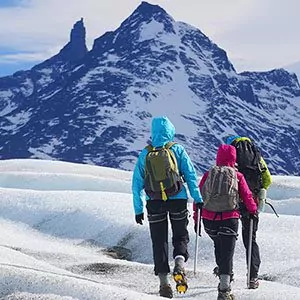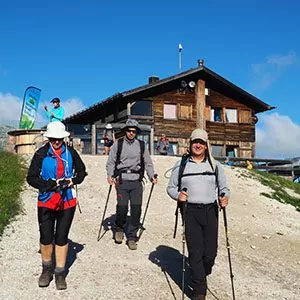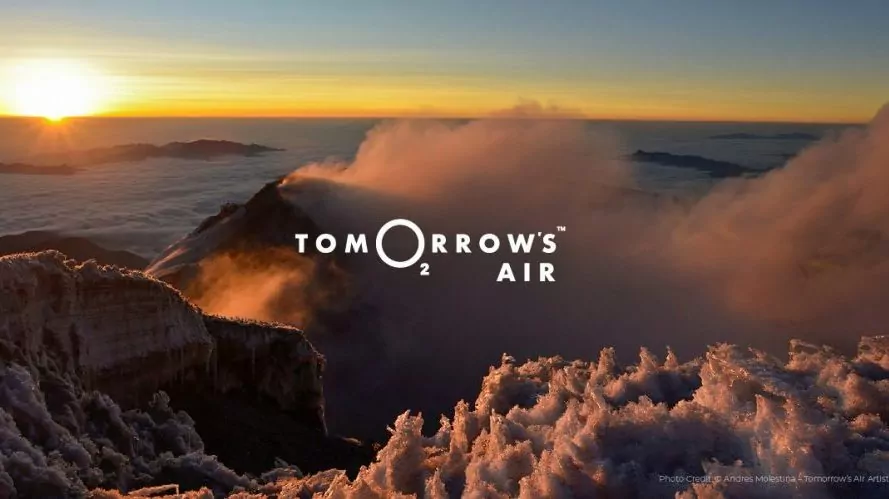Healthy People, Healthy Planet
Wildland Trekking believes in acting responsibly as we grow.
Conservation has been a core part of our mission at Wildland since the beginning. For years we have supported the conservation efforts of local non-profits and associations affiliated with each of our destinations. This support has taken form as financial contributions, strategic partnerships, fundraiser donations, volunteer projects and more.
What became increasingly clear over time however was that protecting our very special destinations (like Yellowstone, Yosemite, the Great Smoky Mountains, Grand Canyon, Torres del Paine, and Kilimanjaro National Park to name a few) only works if we – as humanity – can protect the planet as a whole. These pristine refuges are not islands, disconnected from the rest of the world. They are 100% dependent on the well being of the global environment. This important realization was the spark that lit our sustainability mission, to go hand in hand with our conservation efforts.
The NEED for Sustainable Travel
 Worldwide, travel and tourism has become a staggering $3 trillion dollar industry. Its growth often outpaces global GDP, and all long term markers point to continued, explosive growth.
Worldwide, travel and tourism has become a staggering $3 trillion dollar industry. Its growth often outpaces global GDP, and all long term markers point to continued, explosive growth.
These revelations are ultimately unsurprising when you look at the travel landscape as a whole. Modern technology has made globetrotting around the planet profoundly easy, when contrasted with literally all of human history before the late 20th century. The internet has put nearly every destination at our finger tips where travel can be booked in seconds. On top of that, social media is now flooded with people traveling full time and posting images and stories about their exploits to thousands or millions of followers, which is further exploding demand. Lastly, young people say they are less interested in “things” and more interested in “experiences,” and travel is the #1 item on their list of desired experiences.
Together, all of this information paints a picture of a tsunami of tourists impacting nearly every corner of the planet in the coming decades.
And here’s the rub. Every visit by every tourist to every destination in the world has impacts – positive and/or negative – on the local community, the local ecosystems and our planet as a whole. Every choice – the food travelers eat, the transportation they use, the people they hire, the lodging they book, the tours they join – has dominoes. The impact of each choice is ultimately small, but $3 trillion worth of small impacts is an avalanche of effect influencing ecosystems and communities across the globe.
THE WILDLAND philosophy

The key philosophy behind our sustainability mission at Wildland is a deep conviction that if approached conscientiously, tourism can create very positive outcomes locally and globally.
We believe the three key ingredients to creating positive outcomes are:
- Having an awareness of our impact.
- Eliminating or offsetting the negative impacts such as waste production, pollution and carbon emissions.
- Actively contributing in thoughtful ways to local economies and communities to promote the conservation of regional ecosystems and the well being of the local populations.
At Wildland, our primary focus since 2005 has been point three – conservation and support of human communities. Through our sustainability mission we are now ambitiously expanding our commitment into the first and second points as well, to lead by example toward a healthier planet by reducing, eliminating and/or offsetting the impacts of people traveling to do Wildland trips.
The categories of our renewed focus fit into the following categories:
Carbon Neutrality
Without a healthy climate, we – as a species – have nothing. Our major moonshot at Wildland is to reach carbon neutrality. This includes everything from guests’ airplane travel and local shuttles to the production and transportation of the food and gear we use on our trips. As part of our commitment to carbon neutrality we have joined Tomorrow’s Air, a travel collective inspiring and engaging travelers and travel companies to scale up the use of carbon removal technology – cleaning up CO2 from the atmosphere quickly, and storing it permanently. Read More…

Reducing Downstream Waste
We maximize recycling to the greatest extent possible. This includes waste recycling with plastics, aluminum, glass, fuel canisters, oil and more. But it also extends to our use of gear and equipment. We donate used equipment to nonprofits like Grand Canyon Youth so these items can be used for an entire life cycle, even if they’re beyond the quality of a commercially guided trip.
Reducing Single Use Plastics
Single use plastics include everything from Ziplock-style bags to food packaging to plastic water bottles and more. These plastics have become a plague for the environment. Many of them end up in the ocean and are broken down into tiny particles that build up in the bodies of almost every type of marine life. As an illustration of how important this initiative is, one well documented study found microscopic plastics raining down from the sky in the Pyrenees Mountains of Southern France. Humanity must alter its use and disposal of plastic, and from our perspective it begins with us.

Support of Human Communities
We recognize that sustainability is impossible if human communities are unsupported, and people are poor, hungry, uneducated, lack connection with the natural world, or worst of all, are negatively impacted by tourism. Unfortunately in many places throughout the world, including in America, some or all of these problems are present. It is a crucial part of our mission to support human communities. We accomplish this through support of organizations like Feed the Children, Grand Canyon Youth and others. We are also working to increase minority youth access to wild spaces in the USA, which we believe is an important component of race equality. Finally, we are sensitive to the impacts our trips have on local communities, and work to ensure Wildland has a positive impact.





